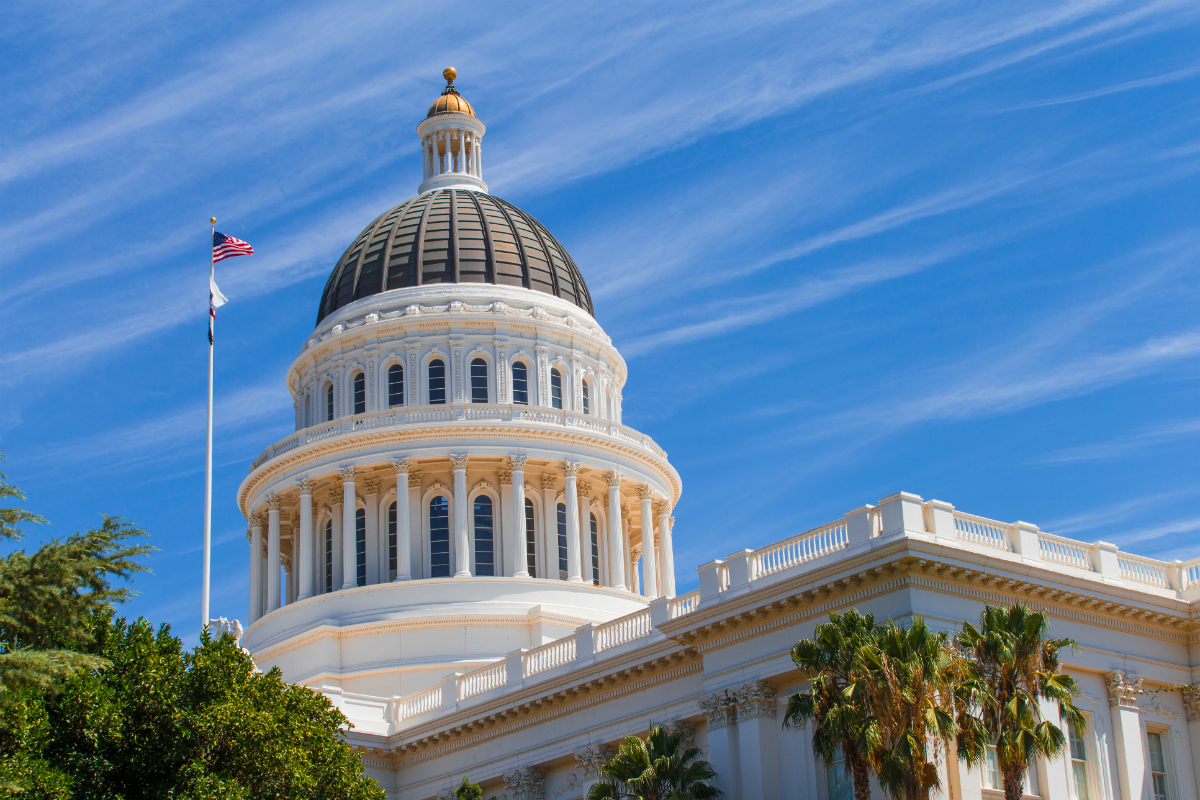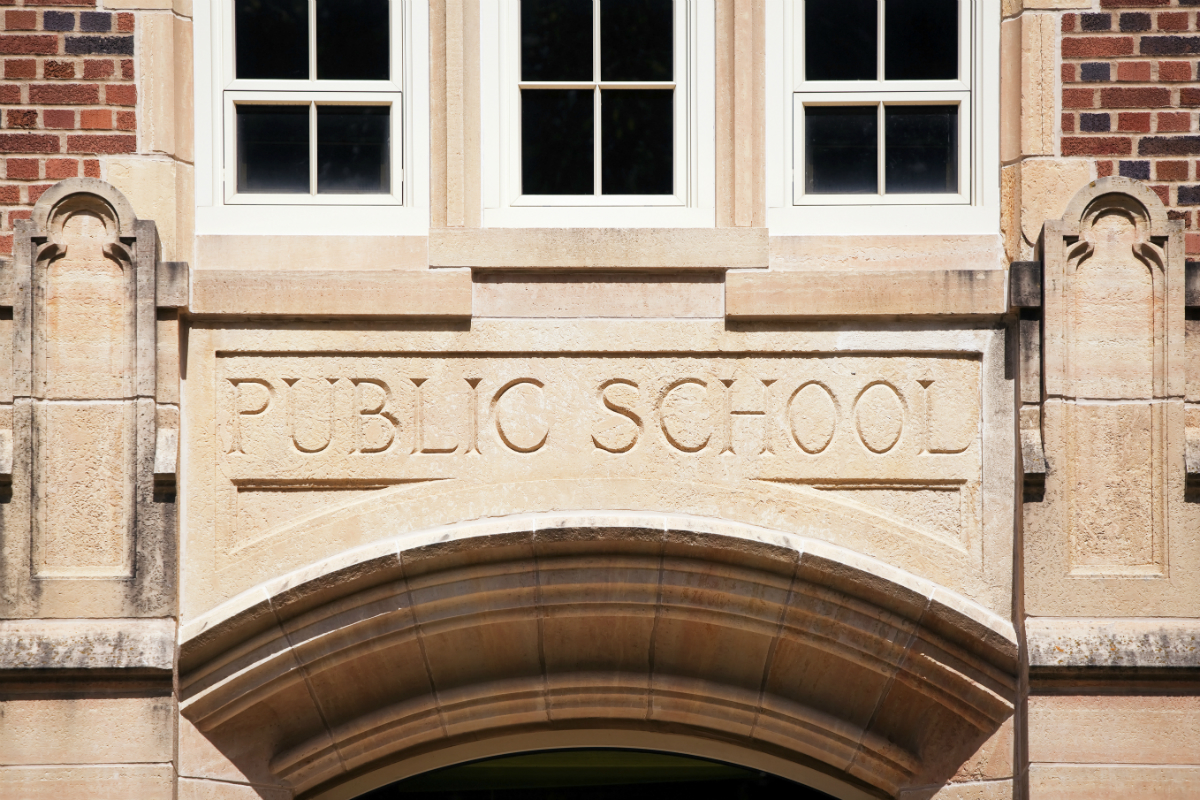Gov. Gavin Newsom released his 2023–24 Budget Proposal on Jan. 10, outlining a $297 billion budget proposal and officially kicking off the budget season. Despite a slowing economy and what the Newsom Administration projects to be a $22.5 billion dollar state General Fund shortfall, the budget continues many of the state’s commitments to TK-12 education without making any discretionary withdrawals from the Proposition 98 rainy day fund.
Watch CSBA President Susan Markarian’s statment on Gov. Newsom’s 2023–24 Budget Proposal.
Prop. 98 Guarantee comes in at $108.8 billion; LCFF COLA rises to 8.13 percent
The Proposition 98 Guarantee will remain in Test 1 through 2023–24. The Governor’s plan proposes $108.8 billion in Proposition 98 funding for 2023–24, a decrease of approximately $1.5 billion relative to the 2022 Budget Act that includes a rebenching of the guarantee to accommodate the ongoing implementation of transitional kindergarten.
The Governor’s proposal also includes a Local Control Funding Formula cost-of-living adjustment (COLA) of 8.13 percent, an increase of $4.2 billion in discretionary funds for local educational agencies when combined with growth adjustments. To fully fund this increase and to maintain current year LCFF apportionments, the plan provides $613 million in one-time funds to support the ongoing cost of LCFF in 2022–23 and approximately $1.4 billion in one-time funds in 2023–24.
LCFF equity multiplier
The budget also follows through on a previous agreement with the Legislature by including $300 million ongoing Proposition 98 General Fund to create an “equity multiplier” as an LCFF add-on. Funds will be distributed to LEAs with schools serving high concentrations of students eligible for free meals (90 percent or more free meal eligibility for elementary and middle schools and 85 percent or more free meal eligibility for high schools). Funds are intended to augment resources for the highest-need schools. The funding will be paired with amendments to the K-12 accountability and continuous improvement system aimed at ensuring any significant student group or school-level equity gaps within LEAs are identified and addressed.
LEAs with eligible schools would be required to use the funding on services and supports that directly benefit the eligible school(s). In addition, the LEA will be required to engage with parents and communities to plan for the use of the money at the school(s) generating the funds through the Local Control and Accountability Plan (LCAP) and specifically address any underlying issues in the credentialing and preparation of the schools’ educators and for student groups in the ‘red’ and ‘orange’ performance categories on Dashboard indicators.
Funding provided for continued TK expansion; Early ed facilities funds delayed
Entering the second year of the state’s four-year commitment to implementing universal transitional kindergarten (UTK), children who turn 5 years old between Sept. 2 and April 2 (approximately 46,000 additional children) will be eligible for TK beginning in the 2023–24 school year. This expands eligibility by two birth months, from Feb. 2 to April 2. To reflect this growth, the Governor proposes continuing his year-over-year commitment to rebench the Proposition 98 Guarantee upward to reflect this growth in enrollment. Specifically, the Governor proposes to rebench Proposition 98 by 0.3 percent, from 38.3 percent to 38.6 percent of the General Fund.
For the 2023–24 school year, the Governor’s budget proposes $690.4 million to implement the second year of UTK and $165 million to support the addition of one additional certificated or classified staff person in TK classrooms while maintaining the existing 12:1 adult-to-student ratio. Full implementation of UTK is expected in 2025–26.
The proposal also includes modest changes to 2022–23 funding to reflect updated enrollment and attendance data:
- Reducing by $10 million, from $614 million to $604 million, the increased funding for the enrollment of all age-eligible 5-year-olds.
- Reducing by $46 million, from $383 million to $337 million, funding to add one additional certificated or classified staff person to every TK class.
The Governor’s Budget Proposal also delays $550 million in one-time General Fund allocated in the 2022–23 budget to help schools construct TK, full-day kindergarten or preschool classrooms to 2024–25.
Special education base funding includes 8.13 percent COLA
The proposed budget continues the special education base funding increases from the last few years and provides an 8.13 percent COLA. The Newsom Administration also proposes programmatic changes regarding budgeting and reporting transparency for Special Education Local Plan Areas (SELPAs); however, language reflecting these changes is not yet available.
Home-to-school transportation funding remains
Included in the proposal is the $637 million commitment to fund 60 percent of approved costs for the home-to-school transportation program, including a COLA for the transportation add-on to LCFF.
No changes to major programs established or expanded in recent years
- Educational workforce development: In prior years’ budgets for 2021–22 and 2022–23, $5 billion was provided over five years for a variety of teacher and staff recruitment and retention programs, including the Educator Effectiveness Block Grant, the Golden State Teacher Grant Program and the Classified School Employee Teacher Credential Program. The Governor’s January budget proposes no changes in the funding for these programs.
- Expanded Learning Opportunities Program: The Governor’s budget maintains the $4 billion in on-going Proposition 98 funding for the Expanded Learning Opportunities Program to address lost learning opportunities due to the pandemic through the provision of after-school and summer programs.
- Universal meals: The Governor’s budget maintains the state’s commitment to fund the expansion of the universal meals program with $1.4 billion ongoing in annual funding, which includes two free meals for all students, but does not include increased funding to meet growing food costs due to the adoption of Senate Bill 490 (Caballero) Chapter 602, Statutes of 2022.
Proposition 28 implementation and cuts to Arts, Music, and Instructional Materials Discretionary Block Grant
To implement the voter-approved Proposition 28, known as the Arts and Music in Schools – Funding Guarantee and Accountability Act, the budget includes $941 million to increase arts programs and instruction in public schools. This amount is in addition to and on top of the Proposition 98 Guarantee, which will be rebenched to include these funds in subsequent fiscal years. Further, the Governor’s proposal also includes $100 million in one-time funding to increase access to cultural events for 12th-grade students, such as visits to performances and museums.
Gov. Newsom’s Budget Proposal also includes a reduction of approximately $1.2 billion in Proposition 98 funding from the Arts, Music, and Instructional Materials Discretionary Block Grant included in the current year Budget Act of 2022.
$250 million to increase access to literacy staff
The Governor is proposing to target $250 million in one-time Proposition 98 General Fund to increase access to literacy staff in several hundred more schools in high-poverty areas and enable students at these school sites access to reading specialists and literacy coaches. The proposed budget also includes $1 million to support educators in utilizing new and existing literacy resources through the creation of a Literacy Roadmap.
Funding to provide schools with fentanyl overdose medication
The Governor also proposed $3.5 million in ongoing Proposition 98 funds to provide all middle and high schools with at least two doses of naloxone to be used to reverse opioid overdoses.
$28.7 million proposed for cybersecurity
The Newsom Administration is proposing $28.7 million to enhance the capacity of the California Cybersecurity Integration Center (Cal-CSIC), which serves as the state’s hub for cybersecurity preparedness and response activities and coordinates cyber intelligence and information sharing with local, state and federal agencies and institutions. Although not specific to schools, the funding increase will allow Cal-CSIC to increase efforts to identify and mitigate cyberthreats, including enhanced threat detection, assessment and research along with incident analysis and response.
No action taken to provide pension relief for school employers
The proposed budget does not provide any funding to buy down school employer pension contribution rates in the state’s public retirement systems. The amount of the state’s annual contributions to CalSTRS, as required by current law, are proposed to be increased approximately $218 million for a total of $3.9 billion in General Fund.
What’s next?
All eyes will now turn to the Legislature, where leadership in both houses have declared their support for protecting the investments made in education over the last several years. Much of the detail regarding the Governor’s budget will be in budget trailer bills, which should be available in early February. By May 15, Gov. Newsom will release his May Budget Revision, and negotiations between his Administration and the Legislature will be ongoing until the June 15 deadline for the Legislature to pass the budget bill. The Governor will then have until July 1 to sign it.
CSBA will continue to provide updates and opportunities for advocacy as the budget cycle continues.





